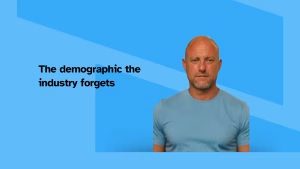By Sacha Lazimi, CEO and Co-Founder of Yubo
The pervasiveness of social media across all ages has influenced our modern behaviours and in a world dominated by digital culture, people are currently developing social media habits that can simultaneously benefit and harm their mental health. The pandemic has also forced our digital culture to evolve further- In many ways it has defined how social media users seek attention online. We’ve been locked inside for months on end and with that, our behaviour – both on an offline – has changed.
Image-focused platforms and the like-seeking behaviours they promote bring harmful effects to our mental wellbeing – studies have shown that social media usage that becomes ‘addictive’ can have detrimental effects to young people’s mental health. As we now live in a world where we are expected to present highly curated versions of ourselves, users risk becoming obsessed with finding ways to obtain the perfect looking lifestyle and the likes and attention they desire. In order to break the addiction to likes and online gratification, all society needs to be tuned into what’s happening and should work on it. The balance between virtual and IRL has to be reviewed and promoted via social platforms for users’ wellbeing.
The psychology behind our craving of ‘likes’
‘Likes’ on social media have become a quick way for us to communicate to others and signal our validation and approval with a single click. Many studies have worked towards figuring out what exactly goes on in our brains when we’re participating in these activities. As human beings we share an innate drive to connect to others and due to being social creatures we have always sought approval from our peers.
According to an article by Harvard University researcher Trevor Haynes When we receive a like on social platforms our brains associate this with a pleasant experience and release a ‘feel-good’ hormone called dopamine. This is also what we experience when we eat our favourite foods or open that great bottle of wine, which explains why we actively seek out that feeling again and again and why it can lead to addictive tendencies in some. Further research has also found that giving and receiving ‘likes’ activate the reward associated parts of our brains – this positive recognition is the same feeling we get when we exercise or achieve a set goal which further highlights how these simple actions on social platforms can trigger feelings of validation.
It’s helpful to be aware of the reasons behind the ‘rush’- receiving positive notifications from others tap into some of the very elements that make us human, our addictions, desires, anxieties and joys. With 1.13 trillion likes on Facebook since it launched in 2004, that’s 4.5 billion every day and 3,125,000 new likes a minute, it’s easy to feel compelled to compare our numbers with those of others and if we aren’t getting as many we may feel inadequate. It’s important users and social media platforms take steps now to ensure we don’t succumb to an overreliance on validation from the virtual worlds that we have created.
Selfie-esteem – Keeping your sense of self in a virtual world
As social media usage continues to increase across all ages we need to ensure we don’t start replacing real-life achievements with the virtual illusion of self-worth. There are a thousand ways to flaunt happiness on social media, but fewer for expressing defeat. More needs to be done to remind users that people only let you see what they want you to see and most of what we do see on these platforms are not a true reflection of real life.
Social platforms have a duty to play in encouraging users to present authentic versions of themselves and providing platforms where users are able to share authentic content without worrying how it will be received. There are also simple steps users can take to eliminate the feelings of FOMO and other negative effects that constantly checking your phone can bring. Pausing or turning off notifications will give you a respite from the buzz and unfollowing accounts that trigger feelings of low self esteem or hiding their profiles from your feed will help to stop self destructive behaviours such as jealousy and resentment. Users shouldn’t add yet another pressure by assuming the key is to go cold turkey and banish their phones forever but changing your mindset to a more positive one and giving yourself a break will help to promote positive actions and choices.
Life without likes – Taking social media back to basics
It seems social media has become more about liking and being liked than a place for users to make genuine connections and share information which is after all the original purpose of these platforms. In order to break the addiction to likes, society needs to work together to find a healthy balance between virtual and IRL and this needs to be promoted via social platforms to ensure we use them in a healthy and safe way.
We are seeing a rise in the demand for social spaces as places to make meaningful connections especially amongst Gen Z and millennial generations who have grown up as some of the first digital natives and are now hungry for genuine online interactions free from the pressure of likes. This is why we designed Yubo as a place for Gen Z to socialise online in an authentic way and give them a platform to amplify their voices free from Influnencers, likes and ad’s. As Yubo is a live streaming platform we focus on providing a space where users can bond over shared interests – we don’t allow users to ‘like’ content, in fact, we don’t even have lasting content on the platform. Instead users focus on creating friends – not followers – with people whom they meet on the platform.
Our digital tools should be places that allow us to express ourselves in positive and healthy ways – if we take action to bring social media back to basics now we will shape how we all connect with others and develop relationships with ourselves for years to come.










